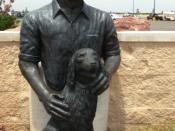Abstract
Wal-Mart is by far the largest retailer in the United States. It consistently puts competitors out of business, and has sales larger than the Gross National Product of most countries. However, on average, it pays its employees lower wages than most retailers and uses contractors who use sweatshop labor overseas to produce goods that have been labeled "Made in America." Wal-Mart is accused of increasing the need for social services in areas where its stores are leading employers, as many employees qualify for public assistance. Wal-Mart is also in the business of making moral decisions for its customers such as refusing to carry Previn, a "morning-after" pill, and censoring music and videos. This teaching case study aims to draw out discussion about these issues in undergraduate ethics and political economy classes. In particular, some questions we hope arise from this study include: What are the responsibilities of a corporation, especially one as large as Wal-Mart? Should a corporation be concerned with the effects it has on a society, ecosystem, or community? What are the rights of communities when it comes to allowing or not allowing businesses into their area? What are the policy implications? This case study aims to raise more questions than answers in these areas, in the hope that classes can use the study as a guide for lively discussion about the marketplace, social welfare, cultural homogenization, labor and other issues in the context of expanding global corporate influence in society.
Wal-Mart or World-Mart?
Introduction
Wal-Mart is a company that most Americans are familiar with, a company with stores that offer everything a person could need at low prices. What began as a company based in a small Arkansas town has grown to be the largest employer in the United States. By 1998, Wal-Mart had the...


